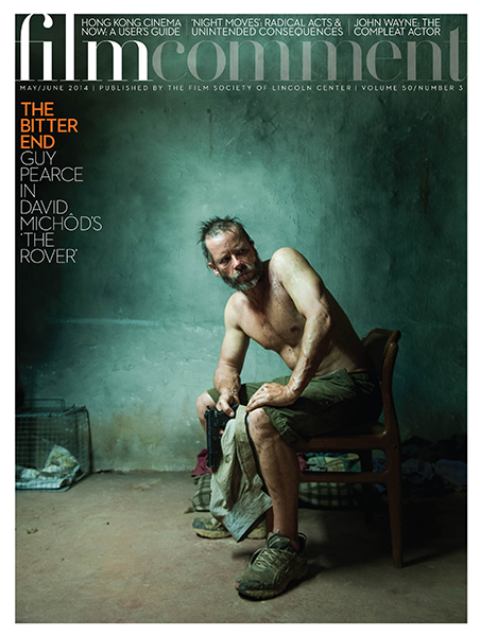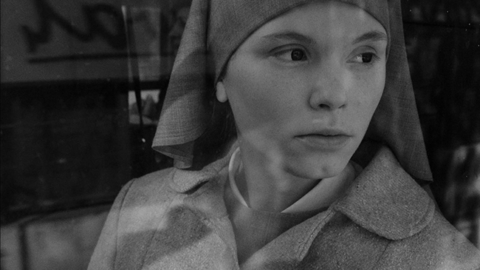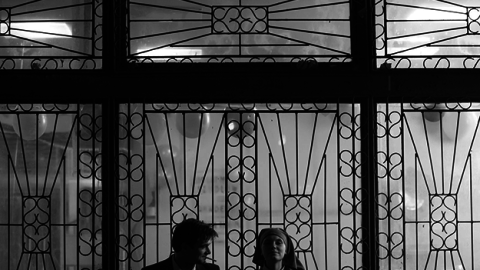
The weight of 20th-century Polish history, specifically the anti-Semitism of the war years and the Stalinist peak of the early Fifties, hangs over Pawel Pawlikowski’s stark, black-and-white road drama. The political is personal in the story of novitiate nun Anna, who, sheltered in an orphanage since she was a baby and now in 1962 about to take her vows as an 18-year-old, tries to find how her parents disappeared during World War II and where they were buried. That heaviness takes the form of the spartan interiors and vast blank skies that frequently push Anna to the bottom of the frame, the oppressiveness of the mise en scène enhanced by the use of the almost square Academy ratio by DP Lukasz Zal.
This spatial cloistering is a self-conscious yet effective way of presenting the devout, stoical protagonist, who is so wary of the outside world that she faces it with a single grave expression (Warsaw University student Agata Trzebuchowska gives an intensely focused performance in her screen debut). She has been conditioned to mistrust the freedoms and pleasures offered by the secular world, and even when, late in the film, she considers sampling them, it is as if she will be seeking empirical proof to confirm that her decision to become a nun is the correct one. Yet in putting on makeup and a dress and swigging from a bottle, she is also honoring the sybaritic values of her Aunt Wanda (formidably played by Agate Kulesza), who has helped Anna on her quest.

An uprooted Pole who has lived in exile his entire adult life, Pawlikowski has shown particular empathy as a filmmaker for dislocated female outsiders: the young Russian mother and asylum-seeker in Last Resort (00); the working-class girl who cathects a posh girl in My Summer of Love (04). Anna’s alien status is intensified by her interaction with Wanda, whom she is sent to visit at the outset by her mother superior before she enters the nuns’ order.
Inspired by Helena Wolinska-Brus, a professor’s wife at Oxford where Pawlikowski met her in the early Eighties, Wanda is a former Stalinist show-trial judge with blood on her hands. Her moral failure is contrasted with Anna’s moral innocence; Anna’s self-abnegation is contrasted with Wanda’s dissolutedness. She drinks and picks up men less to assuage her culpability as a ruthless apparatchik, however, than to escape a wartime tragedy above and beyond the death of her beloved sister. She may also be afflicted with survivor guilt. A Jew who escaped the Holocaust, Wanda informs Anna that she was born Ida Lebenstein and that her parents were murdered because of their religion. Despite having never previously met her niece as an adult, she takes charge of Anna’s quest. Retaining enough of her authority and influence to intimidate those who get in her way, she brings about the fateful situation in which she and Anna are led across a field to a cluster of trees by the son of the dying Polish farmer who appropriated the Lebensteins’ home and land. Filmed in long shot, Anna and Wanda are dwarfed by the godless landscape, which inevitably evokes some of the woods and fields in Claude Lanzmann’s Shoah and Władysław Pasikowski’s Aftermath.
Bressonian in its austerity, Ida is Pawlikowski’s most beautiful film yet. Though unleavened by humor, it makes a few concessions to 1960s modernity. On their road trip, Anna and Wanda give a ride to a young sax player (Dawid Ogrodnik) whose good looks are not lost on Anna. His band, led by a cool blonde singer (Joanna Kulig), later gigs for a small town’s anniversary in scenes that have a Czech New Wave frisson. When he and Anna chat after he’s played John Coltrane’s “Naima” after hours, they sit before the central lower section of a patterned six-panel glass screen that, typifying the film’s visual style, presses them to the foot of the frame. They’re in a hotel, but the church-like feel of the image reminds the viewer of Anna’s ultimate destination. For her, as for her Aunt Wanda, living in the material world is not an option.






